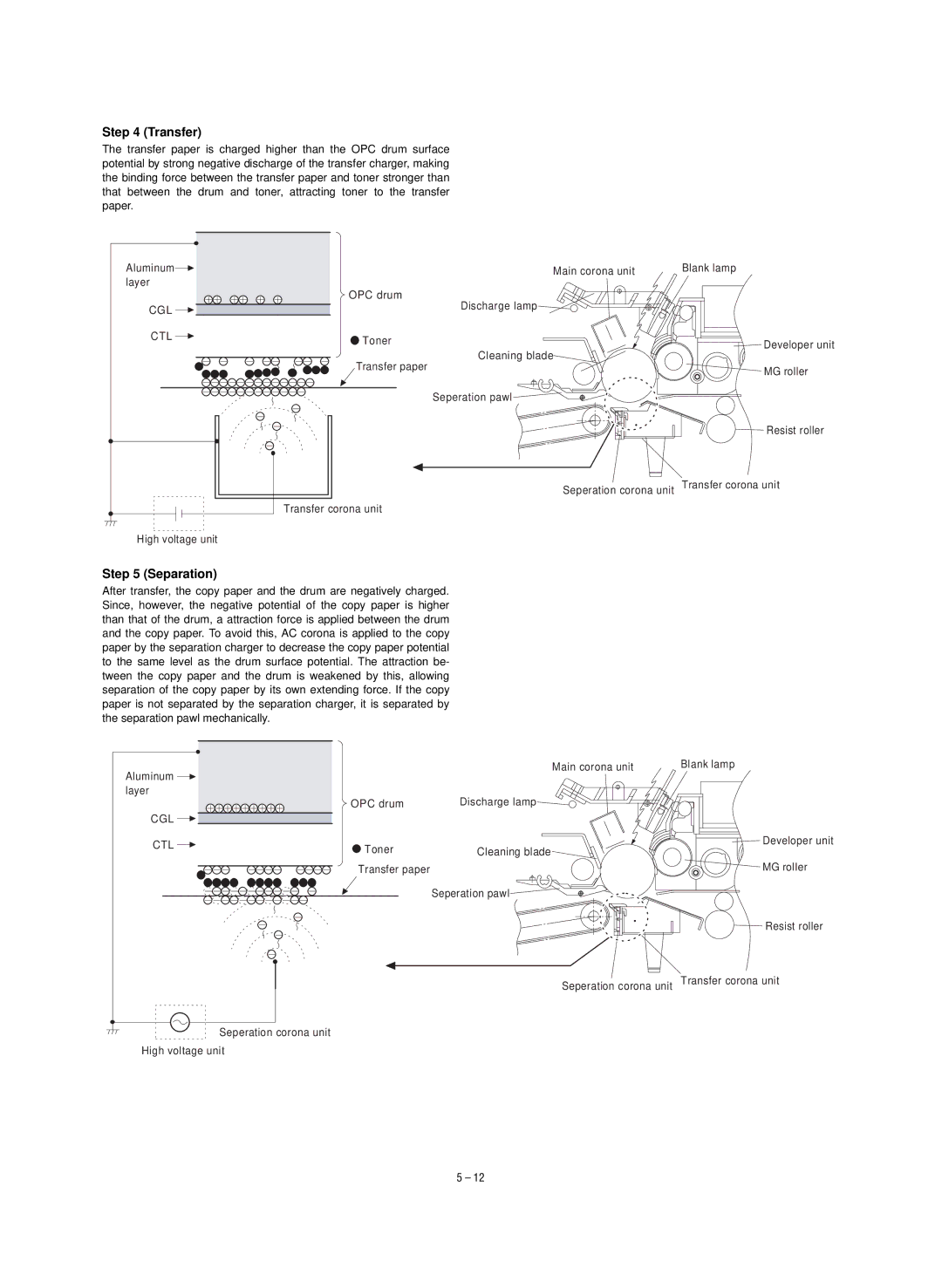
Step 4 (Transfer)
The transfer paper is charged higher than the OPC drum surface potential by strong negative discharge of the transfer charger, making the binding force between the transfer paper and toner stronger than that between the drum and toner, attracting toner to the transfer paper.
Aluminum | Main corona unit | Blank lamp |
layer |
|
|
| OPC drum |
|
CGL | Discharge lamp |
|
|
| |
CTL | Toner | Developer unit |
| ||
| Cleaning blade | |
|
| |
| Transfer paper | MG roller |
|
| |
| Seperation pawl |
|
|
| Resist roller |
| Seperation corona unit | Transfer corona unit |
| Transfer corona unit |
|
High voltage unit |
|
|
Step 5 (Separation)
After transfer, the copy paper and the drum are negatively charged. Since, however, the negative potential of the copy paper is higher than that of the drum, a attraction force is applied between the drum and the copy paper. To avoid this, AC corona is applied to the copy paper by the separation charger to decrease the copy paper potential to the same level as the drum surface potential. The attraction be- tween the copy paper and the drum is weakened by this, allowing separation of the copy paper by its own extending force. If the copy paper is not separated by the separation charger, it is separated by the separation pawl mechanically.
Aluminum ![]() layer
layer
CGL ![]()
![]()
Main corona unit | Blank lamp |
OPC drum | Discharge lamp |
CTL | Toner | Developer unit | |
Cleaning blade | |||
| |||
| Transfer paper | MG roller | |
|
| Seperation pawl | |
|
| Resist roller | |
|
| Seperation corona unit Transfer corona unit |
Seperation corona unit
High voltage unit
5 – 12
